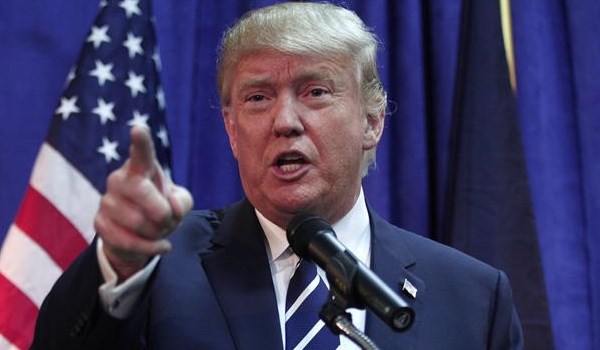
RNA - Just days before his January 20 inauguration, Trump declared Kushner would be aiding his administration in securing “an Israel deal which no one else has managed to get.”
Note that he said an “Israel deal” which suggests that Kushner will dedicate himself to brokering a deal to serve Israeli interests at the expense of the Palestinians. From this point, we can further examine how Trump’s choice and Kushner’s involvement imply that there will unlikely be progress in the negotiation process.
Israeli Connections
Kushner is an Orthodox Jewish millionaire with conspicuous connections to the Israeli regime. In fact, he is regarded as a mediator between Trump and the Zionist lobby.
In a 2015 report by the American Israeli Public Affairs Committee (AIPAC), Kushner was listed as a benefactor for its real estate committee, which required a donation of at least $36,000 to the pro-Israel lobbying group.
Furthermore, he co-directs a family foundation that has donated tens of thousands of dollars to illegal settlements in the occupied West Bank.
According to tax records, the Charles and Seryl Kushner Foundation donated at least $38,000 to the “American Friends of Bet El Yeshiva” in just two years. Also, at least $298,600 were given to the “Friends of the Israel Defense Forces”, an organization that runs programs for Israeli soldiers, between 2010 and 2012.
Among other donations, his family contributed $20 million to a medical school campus in al-Quds (Jerusalem) two years ago.
Role in Trump’s Campaign
35-year-old Kushner played a key role in the 2016 presidential campaign as he advised Trump on his rhetoric regarding the Israeli regime.
Aside from redirecting Trump’s policy toward the occupation, Kushner also helped his father-in-law get on the Zionists’ good side in a speech delivered during an AIPAC conference in 2016.
People close to Trump told Reuters that Kushner advised his father-in-law to lay out concrete policies that would help smooth over relations with the Jewish community as well as use a teleprompter for the speech instead of his conversational style.
It was also Kushner who mediated a call between Trump and the Israeli ambassador to the United States, Ron Dermer, offering Tel Aviv’s perspective ahead of the AIPAC speech.
“Trump …said the United States must stand with Israel in rejecting attempts by the United Nations to impose restrictions on Israel or parameters for a peace deal. He criticized the U.S. deal with Iran as bad for Israel,” Reuters reported.
Influence on Future Decisions
Kushner has a visible influence on Trump’s vision of the Israeli-Palestinian conflict. As a senior advisor, this influence will foreseeably affect future or impending decisions.
When Trump said that the US embassy should be moved to al-Quds, a highly symbolic move that aims to legitimize the city as the occupation’s capital, it seemed that Kushner was pulling his strings. Previously suggesting that he would take an impartial role on Israeli-Palestinian issues, Trump was quick to retract his stance.
In fact, Mahmoud Abbass’ meeting with a US businessman close to Kushner provoked the Palestinian president to launch a campaign against moving the US Embassy from Tel Aviv to al-Quds. This suggests that Kushner was behind the decision.
Moreover, Kushner’s closeness to the Israeli occupation makes him a proponent of illegal settlement constructions in the West Bank. This position was reflected in Trump’s apparent intervention over a UNSC resolution that lambasted Israeli settlements. After Egypt drafted a resolution calling for a halt to all settlement activities in occupied territories, the vote was abruptly postponed. This came amid a series of contacts between Trump, Cairo, and Tel Aviv. It also sidelined the Obama administration over its abstention from voting against an anti-settlement resolution.
Kushner is entrenched up to his neck in Israeli affairs. He cannot be objective—if there is such a thing in American policies toward the Israeli regime—and this angers Palestinians whose very being is at stake.
"If anyone was foolish enough to believe that a Trump administration might succeed in negotiating a peace agreement between Israel and the Palestinians, this is further evidence of their delusions," said Diana Buttu, a Palestinian political analyst and former adviser to Palestinian President Mahmoud Abbas.
Kushner’s deep ties with the Israeli regime render him incapable of being an impartial broker. Thus, his role in Trump’s administration will unlikely succeed in mediating a deal between the occupiers and the occupied in Palestine; because, essentially, he would be pushing Trump into working for Israeli interests and disregarding Palestinians’ rights. This will reasonably result in aggressive approaches toward Palestinians and threatens to further fuel unrest in the nation already burning up on account of the occupation.
847/940